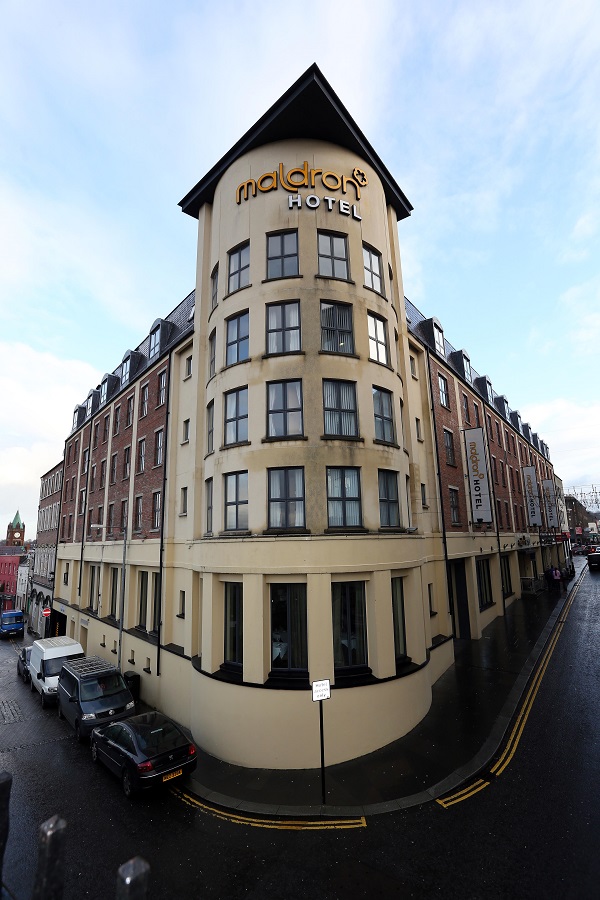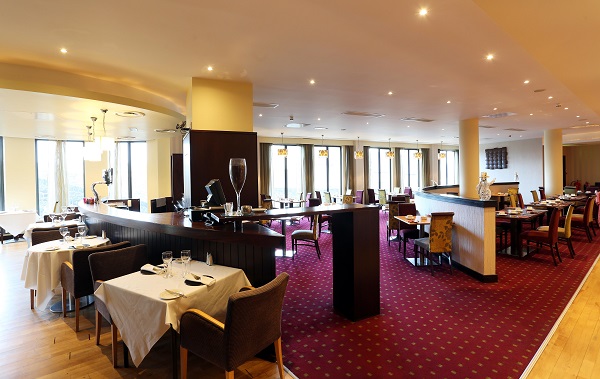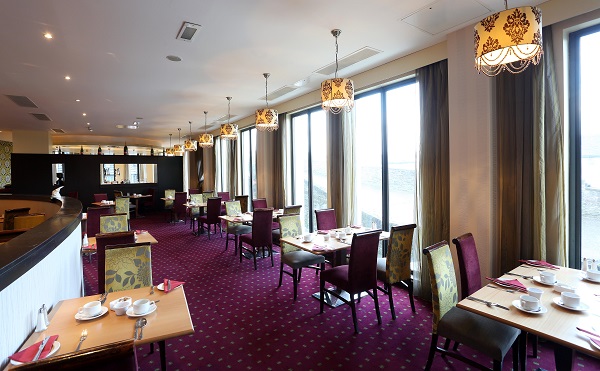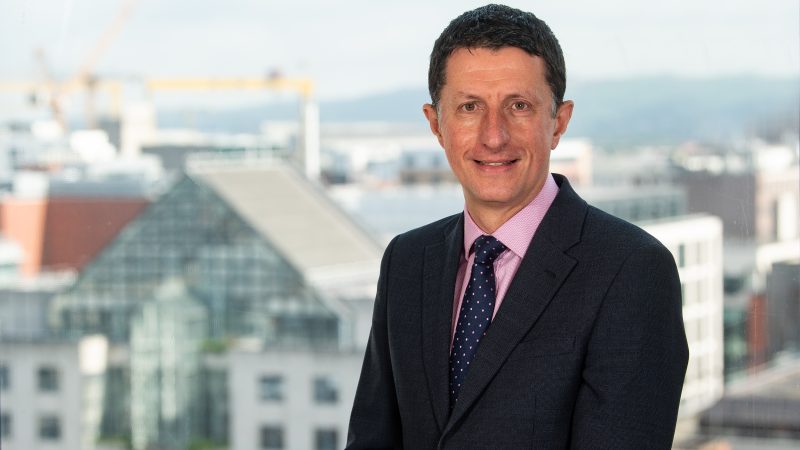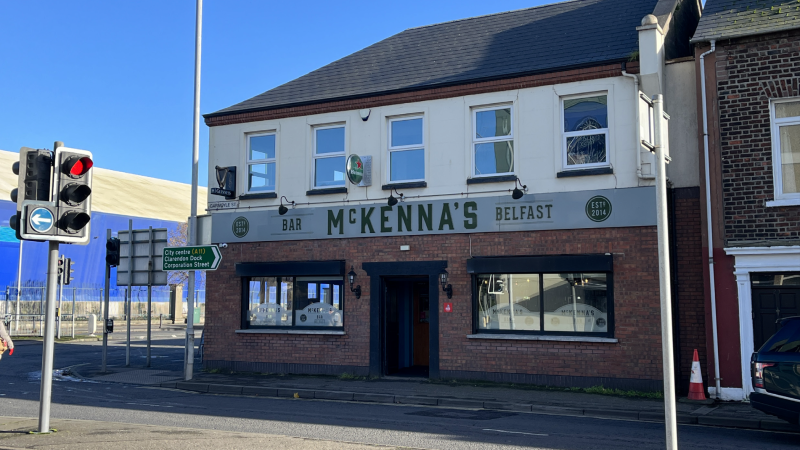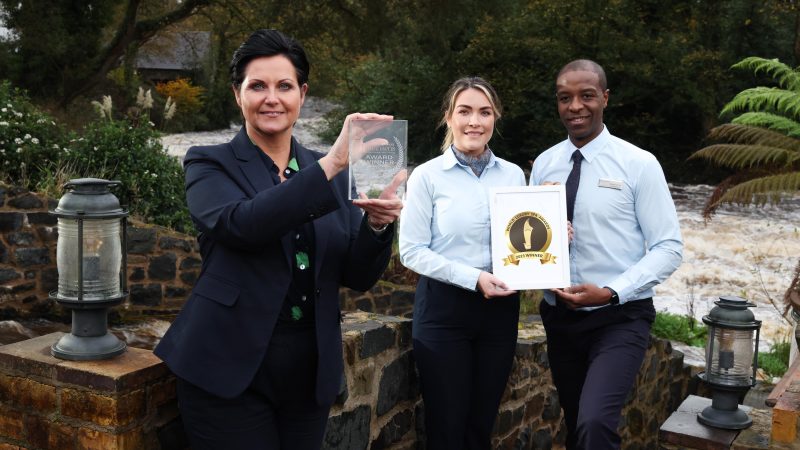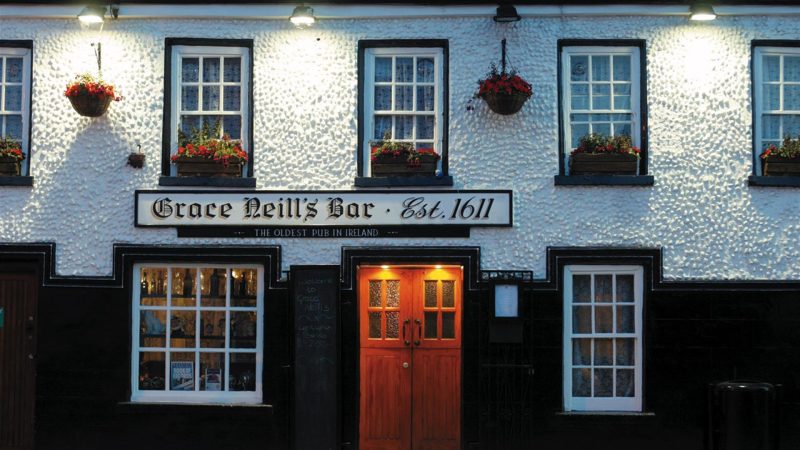No turning back

Mike Gatt, the Belfast-born GM of Maldron’s newly-rebranded hotel in the heart of Derry City, believes that the venue’s potential is firmly rooted in the region’s long and colourful history and indebted to the 2013 City of Culture programme and its continuing legacy. He’s been talking to LCN…
These days, Mike Gatt’s daily routine as a general manager for Ireland’s largest hotel group is a far cry from his humble beginnings behind the bar at The Rocktown in Belfast’s Sailortown district.
He’s always been in the hospitality trade and his current role as GM at the newly-rebranded Maldron Derry represents the pinnacle of a 30-year career, most of it spent managing bars and hotels across his native Belfast.
His time at the Rocktown was followed by 15 years at various venues owned by the Wine Inns group – The Eglantine, The Empire and The Four Winds – before he transferred to Andras House, managing Renshaws in the university area and then the Ramada at Shaw’s Bridge.
The move to the north-west finds its roots in a 2009 shift to the Travelodge Hotel in Belfast. Eighteen months after he arrived, the position of GM at sister venue – the former Tower Hotel in Derry – became available and he transferred to the city.
But Mike (49), is reluctant to break his ties entirely with his hometown and he still commutes to Derry from his home in Belfast for every shift.
“We’ve seen a lot of growth at The Tower Hotel over the last three years or so,” he confirmed for LCN recently. “We’ve established ourselves as one of the leading hotels in the city now. The year as City of Culture [2013] really helped us, I was here prior to that and I saw the business grow enormously over that period of time, and afterwards, there was the legacy that supported the market for overseas stays. Derry, as a destination, is still growing year-on-year.”
Earlier this year, the four-star Tower Hotel was acquired by burgeoning Dublin-based group, Dalata, which re-branded the venue under its Maldron banner and signalled a £430,000 refurbishment for its 93 bedrooms. That work should be completed early in 2015.
“The fact that Maldron Hotels have invested is a clear vote of confidence in the city of Derry and in the hotel product itself,” said Mike. “This is the only hotel inside the city walls, which is a big selling point.
Dalata owns just one other hotel in Northern Ireland at present – the Maldron Belfast at the international airport – although in a recent interview with LCN, the group’s chief executive, Pat McCann, hinted that the group was considering a move into the city of Belfast proper.
The group has been hugely acquisitive of late. As well as The Tower in Derry, it spent a further £26m in 2014 acquiring Whites Hotel in Wexford and Galway’s Clayton Hotel, both of which it had been operating under a management contract since 2009. It also agreed to take on a 25 per cent interest in the Ballsbridge and Clyde Court Hotels in Dublin 4.
Its current spending spree is financed by a €500m pot which the group leveraged on equity of €265m raised in March last year from investors in the UK, Europe and the US.
According to Mike Gatt, there’s no doubt that Londonderry is benefiting from the legacy of its year as the first ever UK City of Culture. During 2013, the region played host to a remarkable programme of arts-related exhibitions and events that served to enhance its national and international profile. During the Fleadh Cheoil celebrations in the city in August, for example, a remarkable 430,000 visitors came to Derry in just one week.
“There’s no doubt that there has been a legacy from the City of Culture and an increase in awareness everywhere of the city itself,” remarked Mike. “It served to show everything here in its best light, it was a great platform for us to show off everything that we had to offer.”
That optimistic outlook is backed by the figures – statistics released recently by Visit Derry show that occupancy rates in the city were the highest ever recorded during August 2013, when a whopping 16,803 bed nights were sold. That’s an occupancy rate of 85.9 per cent and 15.4 per cent up on the same period the previous year.
Mike said that August 2014 had also been “very strong” and “quite similar to 2013”.
“It’s all part of the legacy from the effort that was put in during the City of Culture year,” he added.
Like most of Northern Ireland’s hoteliers, Mike worries about a raft of issues – austerity and the need to contain costs are a constant concern and with Donegal just a short car ride away, the yawning inequality in hospitality VAT rates between Northern Ireland and the Republic couldn’t be clearer.
Mike – who heads up Visit Derry’s Future Event Panel – agrees with the often-voiced suspicion that the north-west has been starved of tourism investment while other areas – and particularly Belfast – have benefitted. He’d like to see capital spent to develop better road and rail links to the region and he feels that there is still untapped potential in Derry for more business tourism:
“One of the things that we could really benefit from is a large conference facility capable of seating up to 2000 people,” he explained. “And events such as that rely on visitors having somewhere to dine afterwards. Smaller events with fewer than 500 delegates aren’t city-fillers, but if you have 2000 plus attending, that becomes a bedroom driver and an economic magnet for cities.”
All that said, however, he believes prospects are very good for Derry. He and his colleagues have been working hard with tour operators to bring visitors into the area, particularly from North America and Europe. This is paying off very well, he reports, and the repeat business that hotels in the city enjoy is described as “phenomenal”.
“The Foyle bridge used to be seen as a way of getting people out of Derry and into Donegal, now it’s a means of getting visitors into the city,” added Mike. “One of the biggest assets that we have are the 400-year-old walls and all of their history. A four centuries-old walled city is something that is unique in Ireland and very rare in Europe. It’s a really huge thing and we are perched above them here which is great for our guests.”
As for priorities at the Maldron Derry, Mike said that the focus is now on making the venue the hotel of choice in the city. Refurbishment of all 93 bedrooms is already underway on a floor-by-floor basis; that work will be complete by April and planning permission is in place for 52 additional bedrooms.
“With the Maldron brand supporting the ongoing work here, I think that we can take this hotel to a level that it hasn’t been at before in terms of its offering and the occupancy levels,” added Mike.


